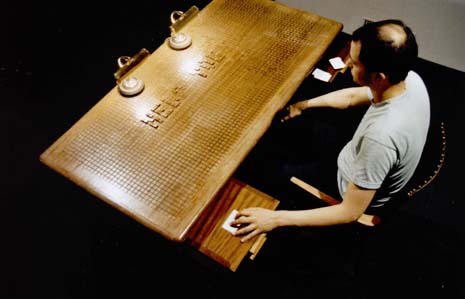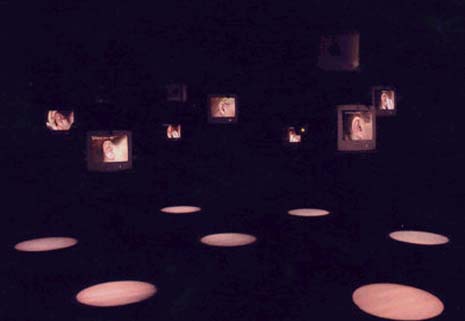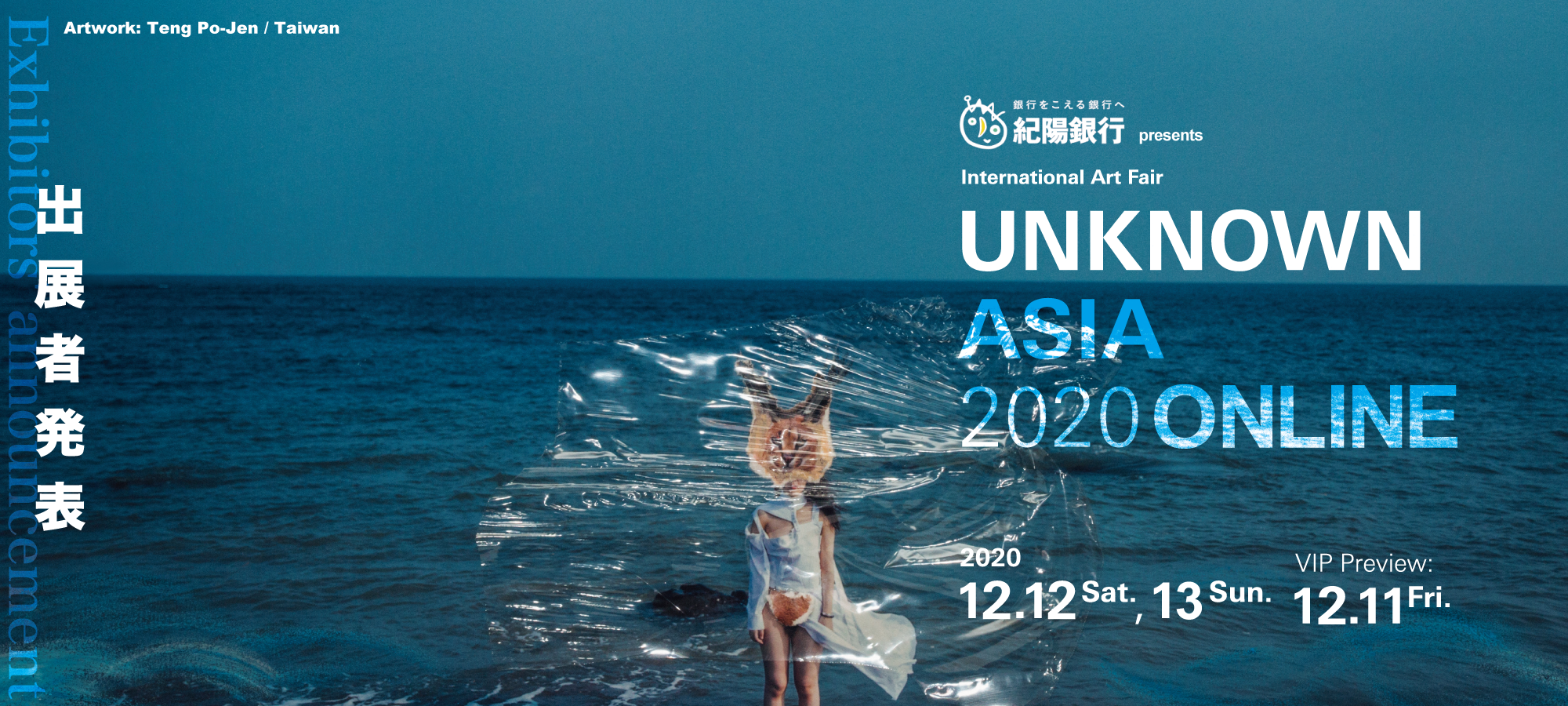ARS ELECTRONICA 2002
Conceived along different lines is a reflection on the metaphors of interaction by Ranjit Makkuni, researcher at Xerox’s Palo Alto Research Center and one of the designers who invented the very first graphic interface in the seventies. “The crossing project” is a unique mixture of futuristic technologies and secular traditions. The objects of classic Indian crafts become the tools for accessing realities beyond the screen. “In an increasingly abstract world in which the computer makes concepts visible – explains the author – I tried to identify objects loaded with symbolic value to invite contemplation on the nature of this passage from real to virtual”,

An invisible force by Crispin Jones is an ironic reflection of the role of “oracles” and predictors of the future which computers increasingly acquire
The experience of interaction is also enriched by new potential in the work of Crispin Jones (An invisible Force) and of Volker Morawe and Tilman Reiff (PainStation) which have in common the “painful” effects of contact with the computer. The first piece aims to be an ironic reflection of the role of “oracles” and predictors of the future which computers increasingly acquire. Inserting a card in a slot with a question about your destiny, you can obtain the response in words made up of raised pieces in a piece of wood. To reach the end however it is necessary to keep the card pressed in the slot, which heats up until it is unbearably hot. Only through this suffering can you get the complete answer.

PainStation by Tilman Reiff provokes electric shocks, burning and lashes on the back of the hand of the loser of a game of Pong, the legendary video game which simulates a game of tennis with two lines and a ball on a black background
“PainStation” by Volker Morawe and Tilman Reiff instead provokes electric shocks, burning and lashes on the back of the hand of the loser of a game of Pong, the legendary video game which simulates a game of tennis with two lines and a ball on a black background.

n-cha(n)t by Canadian artist David Rokeby, winner of the Prix Ars Electronica in the category “Interactive Art”. In a dark room, the computers are talking to each other: if no-one interrupts, they reach a synchronization and understanding which results in them singing a song
A sense of bewilderment hits the visitor of “n-cha(n)t” by Canadian artist David Rokeby, winner of the Prix Ars Electronica in the category “Interactive Art”. In a dark room, a number of monitors are hung from the ceiling. On the screens are video sequences of ears, ready to listen. Nothing appears to happen. In reality the computers are talking to each other, based on a complex system of management of language with which the artist has been working now for ten years. If no-one interrupts, they reach a synchronization and understanding which results in them singing a song. This was exactly what the artist was aiming for (“I wanted to hear computers sing – explains Rokeby – a desire which he has had since childhood, every Sunday I listened to my father, a protestant minister, lead the choir in church”).
If computers receive input from the outside, via microphones in which visitors can speak, re-elaborate the phrases heard and respond with words which appear on the screen. When the monitor shows the ear covered by a hand it means that the computer does not want to listen – it already has too many stimuli and cannot deal with them. It asks us to go away. The feeling is one of surprise and disappointment – the relationship with the computer acquires new connotations, as if we were to suddenly find ourselves talking to something almost human, the silicon incarnation of the prophecy of the anthropomorphic machine. Perhaps this isn’t art which will tip the world balance, but it certainly holds up a mirror to ourselves which is more powerful than any other. And change can only come from here. As it always does.
Ars Electronica 2002
Address: September 7th – 12th, 2002
Place: Linz, Austria
https://www.aec.at
Text: Stefania Garassini
Photos: Courtesy of Ars Electronica © the artists







